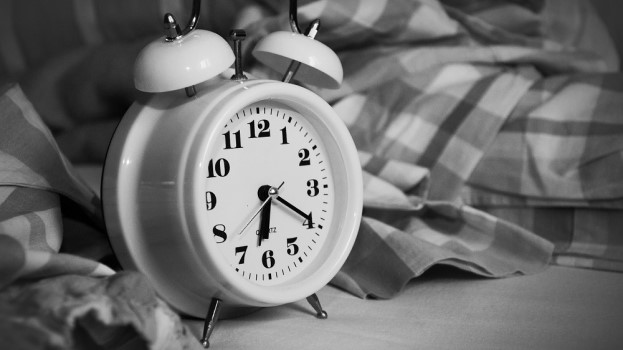If you feel fatigued all the time, these six lifestyle tips may help to reduce your fatigue and boost your energy levels.

We receive many reports on fatigue. In transport, our duty of care often extends beyond ourselves to our co-workers and the travelling public, so managing fatigue is especially important.
There are many good reasons to prevent fatigue from taking hold: poor concentration and judgment, slower reaction times, and making dangerous decisions, to name a few.
If you find yourself regularly experiencing physical symptoms at work, such as being tired, drowsiness and your eyes closing involuntarily, then it is time to act. The slope towards possible burnout puts long-term health at stake. And remember, if fatigue continues over time, it is a good idea to see a doctor in case any health conditions are contributing.
How can we look after ourselves in the best possible way?
1. Get enough sleep
Aim for eight hours’ sleep. Some people will need slightly less, and some more. Remember that just an hour less than your usual sleep requirement can start to impact your health after only a week. Blood-test research reveals that around 500 genes are switched on or off by changes in sleeping patterns. A good night’s sleep is enormously important. You can’t cheat your body and mind if you’re sleep-deprived.
2. Set up a bedroom routine
Bedrooms are for sleeping but, in many households, large-screen TVs, smartphones and tablets can make bedrooms anything but restful. These devices are also known for emitting blue light which interferes with sleep. Enforce the discipline of a ‘digital sunset’ – shutting off devices after an agreed time and doing something else to wind down ready for bed – to restore a good night’s sleep.
There’s also no harm in setting an alarm clock to start off your bedroom routine each night. It will help you time your winding down and keep regular hours. Ensure you block out any light, using blackout blinds if necessary, to prevent it interfering with the body’s circadian rhythms. Take steps to block out any noise too.
3. Get enough exercise
Exercise plays an important role in regulating our sleep, but just avoid exercising within two to three hours of going to bed. Early morning exercise is a different matter: exercising before work starts can increase alertness on the job. Work out the best way of integrating activity into your routine. Cycling to work, or walking there briskly as part of your commute, can boost your health without your routine having to change too much. There are now more smartphone workout apps than ever to help make routines less daunting.
4. Eat and drink well
A balance of healthy foods and plenty of water can stop our energy levels fluctuating too much. Foods with high sugar content and refined carbohydrates provide an initial boost but don’t deliver sustained energy over a longer period. Dehydration can make us less alert.
Eat and drink mindfully, being alert to what your body needs. Fully appreciate what you consume so that you don’t overconsume.
Although an alcoholic drink or two before bed might seem like a good idea to relax, it will negatively affect sleep quality. Avoid alcohol before going to bed.
5. Increase social contact
Fight on-the-job tiredness by starting a conversation with co-workers if you find your attention flagging. The social interaction could provide a much-needed boost if you are feeling drowsy mid-afternoon – which is when we tend to experience a drop in alertness because of the body’s circadian rhythms.
6. Report fatigue
If you feel you are managing your health in a sensible way but are still feeling fatigued, then let your employer know. It could prevent an accident.
If you don’t feel you can speak out at work, you can raise a concern with CIRAS, including for reporting any issues that might be increasing the chance of fatigue.
Find out more
Worn out? Dead tired? Fatigue risk on the railway
Quiz: could you sleep better to help fight fatigue?
Tags
- Fatigue
- Health and Wellbeing
